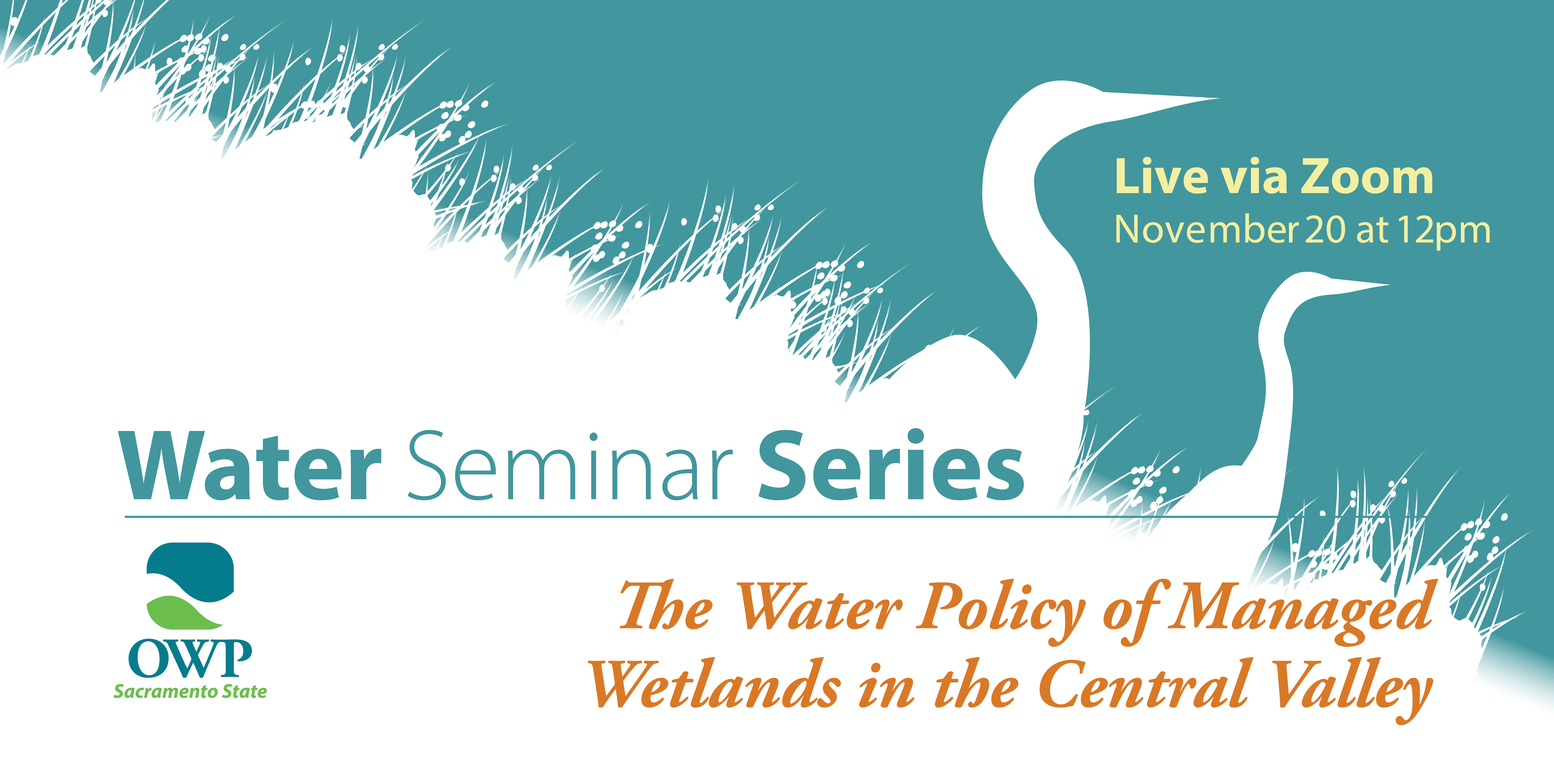The Water Policy of Managed Wetlands in the Central Valley
Topic: The Water Policy of Managed Wetlands in the Central Valley
Speaker: Ellen Wehr, Grassland Water District
When: Friday, November 20, 12 pm to 1pm
Where: Virtual (via Zoom)—Link to virtual seminar to be sent upon RSVP
The recording of the webinar is available here.
California retains only 5% of its once-abundant wetlands, and the basic ingredient of any wetland is water. Protecting wetlands in California is a 100-year-old tradition, started by sportsmen and continued today by a broad coalition who recognize the value of wetlands that support wildlife, improve water quality, recharge groundwater, and encourage outdoor recreation. The Central Valley contains a chain of private, state, and federal wildlife refuges that form a network of habitat for millions of migratory waterfowl and shorebirds each year. Keeping them healthy requires an ongoing effort, involving water law and policy, new partnerships and projects, and long-term strategy.
Our remaining wetlands have survived major changes to our land and waterways. When rivers were dammed and floodplains disappeared, wetlands became actively managed to mimic what nature once provided. As agriculture became more water-efficient, wetland managers imported replacement water supplies, sometimes from hundreds of miles away. Now faced with more extreme droughts and water scarcity, combined with the pressures of urban development and increasing regulations, wetland advocates are working overtime to help wetlands adapt and persevere.
About the Speaker
 Ellen Wehr serves as General Counsel for the Grassland Water District, a local public agency delivering water to the Grassland Ecological Area. Located in Merced County in the San Joaquin Valley, the Grasslands encompass the largest remaining freshwater wetland complex in the western United States. Ellen's work focuses on issues of water rights, water quality, habitat restoration, and land use. As a full-time advocate for wetlands and their water supplies in the Central Valley, she appears before courts, regulatory agencies, and lawmakers, and collaborates with environmental, farming, and municipal water interests. Ellen has practiced environmental law for 13 years, and previously worked at two law firms in Sacramento. She holds a Bachelor of Science degree in Environmental Studies and a Juris Doctor degree with a Certificate in Environmental and Natural Resources Law.
Ellen Wehr serves as General Counsel for the Grassland Water District, a local public agency delivering water to the Grassland Ecological Area. Located in Merced County in the San Joaquin Valley, the Grasslands encompass the largest remaining freshwater wetland complex in the western United States. Ellen's work focuses on issues of water rights, water quality, habitat restoration, and land use. As a full-time advocate for wetlands and their water supplies in the Central Valley, she appears before courts, regulatory agencies, and lawmakers, and collaborates with environmental, farming, and municipal water interests. Ellen has practiced environmental law for 13 years, and previously worked at two law firms in Sacramento. She holds a Bachelor of Science degree in Environmental Studies and a Juris Doctor degree with a Certificate in Environmental and Natural Resources Law.

